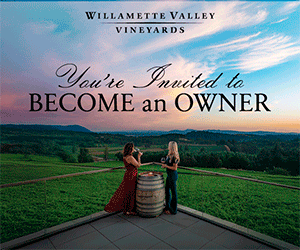Wine with a Conscience
September 2009
By John Darling
For Jeffrey Weissler of Ashland, green may or may not be his favorite color, but it is definitely his niche.
A longtime wine educator, Weissler has turned his love of wine and all-things-green into a small venture, www.ConsciousWine.com. On his website, he evaluates and recommends wineries in Oregon and California that meet his four criteria: 1) they use no synthetic chemicals in the vineyards, 2) they use practices that “support the vitality of the land for our kids’ kids and beyond,” 3) they reflect the unique character of the land and 4) they “rock the house,” which means for Weissler, they taste really good.
What is Weissler’s definition of “good?”
For him, it is simple: a good wine is one that is made in a conscious way, by people who are tuned into the land and honor nature above the bottom line.
“In making wine, you minimize the input. Conventional agriculture says get it to the shelf as easily and quickly as possible. In biodynamic farming, you see the farm as a self-regulating organism. You nurture the asset. You don’t draw on resources outside,” said Weissler, as he teaches one of his ConsciousWine workshops at Noble Coffee in Ashland.
The first thing that might pop into your head is “organic” wine, which has had issues with consumers over stability due to the absence of sulfites, he says.
To make the ConsciousWine list, wineries have to grow their grapes organically, of course, but Weissler realizes that, to be stable, wines need sulfites, which means the term “organic wine” cannot be used.
“So, consumers are becoming more flexible. People want to know more about the sources of what they drink,” Weissler said.
“Biodynamic is stricter than organic, more holistic and a lot of wonderful wines are biodynamically safe,” said Weissler, who offers classes, including “Demystifying Natural Wine,” “The Wine & Food Experience,”
“Wine and Health” and “The Wine Store Jungle,” which covers sustainable wine buying.
Natural wine, he says, comes from land where growers understand and support all the cycles of nature, including finding out what animals originally lived there and helping them re-establish, heeding the expanding and contracting cycles of the moon in planting and harvesting and learning dry farming, so roots are encouraged to grow more deeply.
He even encourages wine lovers not to be seduced by fancy labels, noting, “If you see an ugly label, buy it!” Wine drinkers should also not be swayed by wines made to taste good at first quaff.
“If it tastes good on the first sip, be suspicious,” he said. A wine is like a book and you can’t judge it by the cover or what’s on page one. It may get to its best at page 259, he said, meaning that a good natural wine may want to breathe a lot longer than you think—and may still be good days later.
“Wines need to be made by the unique soul of the place,” he added. “Biodynamic farming means you use the assets of a farm. You become relational with the land. You use less and less inputs. You create a self-regulating organism of which you are a part.”
Phil Kavanagh of Ashland, a student at a Weissler class on pairing with natural wines, said, “It’s important to me to place growing and consuming wine in the larger picture of a sustainable economy and to make us conscious of the price we pay for wine—and not just on the sticker.”
Michael Donovan, managing director of RoxyAnn Winery and past president of Southern Oregon Winery Association says wineries in the state are doing a very good job with environmental practices, using little or no synthetic chemicals, so the land will be supported for future generations.
Third-party certification is a positive step, Donovan added, and with the growing number of labels such as Salmon Safe, LIVE (Low Input Viticulture and Enology), Food Alliance, Demeter Biodynamic or USDA Organic, consumers can feel environmentally confident in wine buying.
Weissler, who has 27 years on the retail side of wine, most of it in New York state, is just starting his ConsciousWine business and says he will soon have DVDs, blogs and webinars on the subject. His website is www.consciouswine.com. ◊
John Darling is an Ashland writer.










